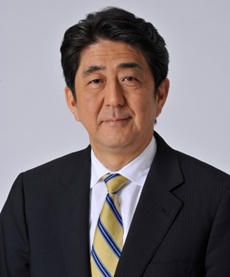Japan to unveil record ¥96-trillion budget for 2015-16
12 Jan 2015
 The Japanese government is expected to propose a record ¥96.3 trillion ($813 billion) budget for 2015-2016 fiscal beginning 1 April, as prime minister Shinzo Abe is seeking measures to stimulate growth in the sluggish economy, Reuters reported citing government sources.
The Japanese government is expected to propose a record ¥96.3 trillion ($813 billion) budget for 2015-2016 fiscal beginning 1 April, as prime minister Shinzo Abe is seeking measures to stimulate growth in the sluggish economy, Reuters reported citing government sources.
The draft budget which has to be cleared by the country's cabinet on Wednesday and further approved by the Japanese parliament in its upcoming session, is slightly above the current year's ¥95.9-trillion budget.
In the new budget, the government looks to cut borrowing for the third year in a row, by ¥4.4 trillion to ¥36.9 trillion, its lowest level in six years, according to the officials.
Japan's national debt, which is around 240 per cent of its gross domestic product (GDP), is the highest in the developed world and significantly more than several European countries like Greece which has 175 per cent, Italy and Portugal 134 per cent each, and Spain 97 per cent.
The nation's budget deficit next year is projected to be around 3 per cent of gross domestic product, which is likely to fulfill the government's promise of halving the primary deficit from 2010-11 levels.
In 2013, the government said that it targets to achieve a surplus by 2020.
Tax revenues are expected to rise 9 per cent to ¥54.5 trillion, the highest in over two decades, reducing the need to issue more government bonds.
Abe had raised sail tax in April to 8 per cent from 5 per cent. Subsequently, the nation's economy slipped into a technical recession registering two consecutive quarters of negative growth from April to September. The economy shrank 1.6 per cent in the third quarter, after registering a 7.3-per cent contraction in the second quarter.
A further hike in sales tax to 10 per cent due in October 2015 has been postponed by 18 months. Moreover, an additional ¥3.5-trillion stimulus package was also announced in December to help provincial economies, small businesses and households and to increase public spending for disaster prevention and reconstruction work in affected areas.
The government also announced corporate tax cuts and tax breaks to wealthy Japanese for next year in its efforts to spur economic growth.
The proposed budget envisages a 2-per cent rise in defence spending to ¥5-trillion next fiscal.
Debt servicing, interest payments and redemptions are expected to grow by ¥200 billion to ¥23.5 trillion.
Social-welfare spending is expected to rise to ¥31.5 trillion from ¥30.5 trillion current year.
Public works spending will remain unchanged at ¥6 trillion next year. According to some analysts, this could result in another extra budget in the latter half of the fiscal.


















